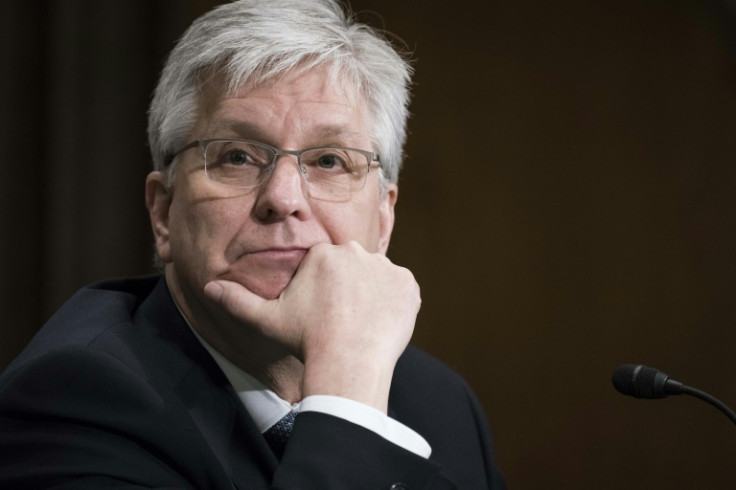US Fed Official Says May Be 'Appropriate' To Lower Number Of Rate Cuts

The US central bank should either scale back or delay its interest rate cuts in response to "disappointing" inflation data, a senior Federal Reserve official said Wednesday.
"In my view, it is appropriate to reduce the overall number of rate cuts or push them further into the future in response to the recent data," Fed Governor Christopher Waller told a conference in New York.
After swiftly hiking interest rates and then holding them at a 23-year high to tackle surging inflation, the Fed recently pivoted to debating when to cut them.
At its most recent rate decision, policymakers reenforced their prediction of three interest rate cuts this year in spite of a recent monthly uptick in inflation, while leaving the Fed's key lending rate unchanged.
"We made a lot of headway in reducing inflation in the past year or so, although the readings in the past two months have been disappointing," Waller said.
Both overall and so-called "core" inflation, which strips out volatile food and energy prices, "rounded to a 0.4 percent increase for the month of February, which is obviously not progress toward our inflation goal," he said, referring to the Fed's long-run target of two percent.
"Shorter-term inflation measures are now telling me that progress has slowed and may have stalled. But we will need more data to know that," he added.
At the same time as inflation has crept higher, US growth has remained robust, and the labor market remains strong, indicating that the overall economy is still in pretty good shape.
"I see economic output and the labor market showing continued strength, while progress in reducing inflation has slowed," Waller said.
"Because of these signs, I see no rush in taking the step of beginning to ease monetary policy," he continued.
"It is prudent to hold this rate at its current restrictive stance perhaps for longer than previously thought to help keep inflation on a sustainable trajectory toward two percent," he added.
© Copyright AFP 2024. All rights reserved.





















